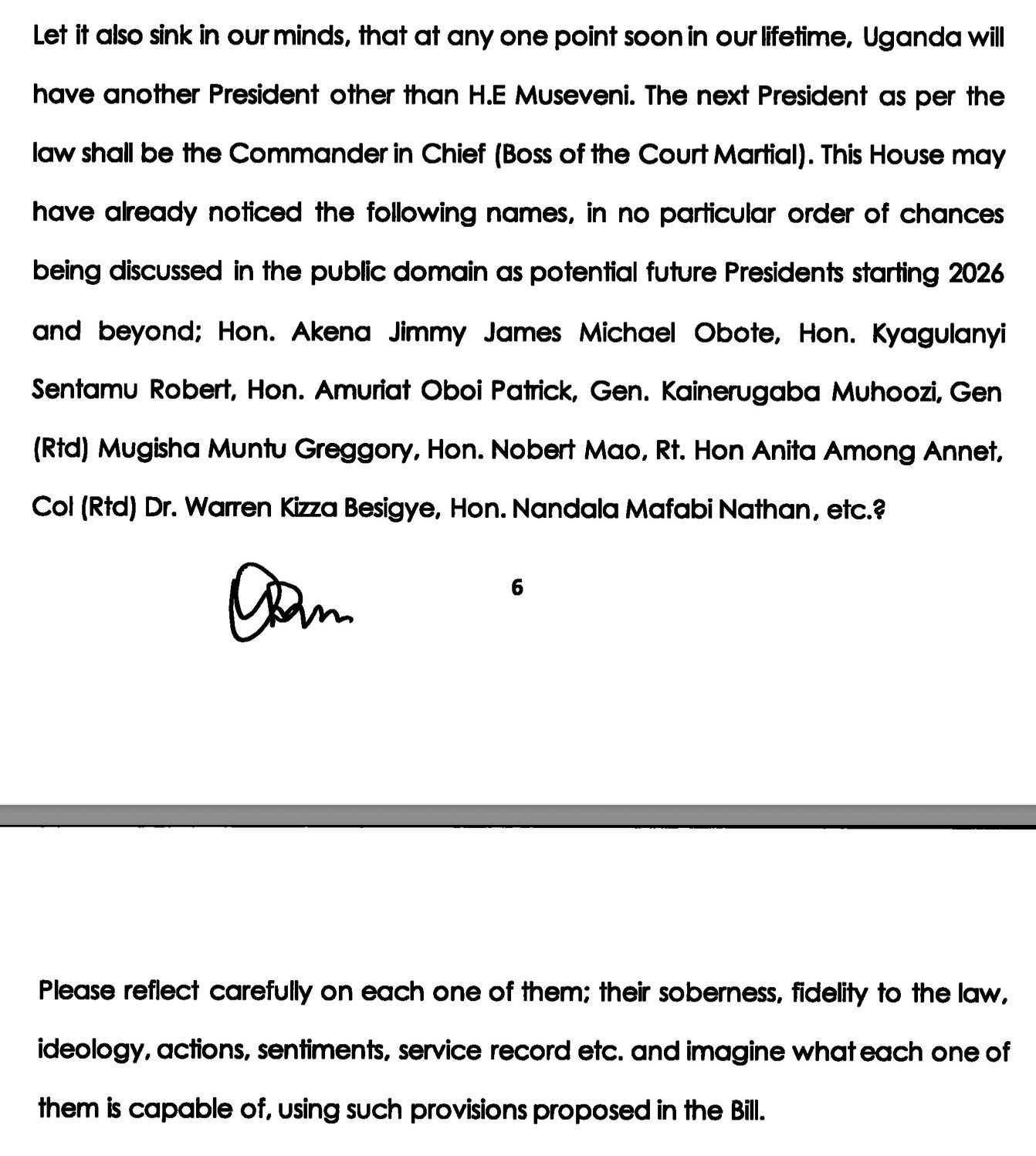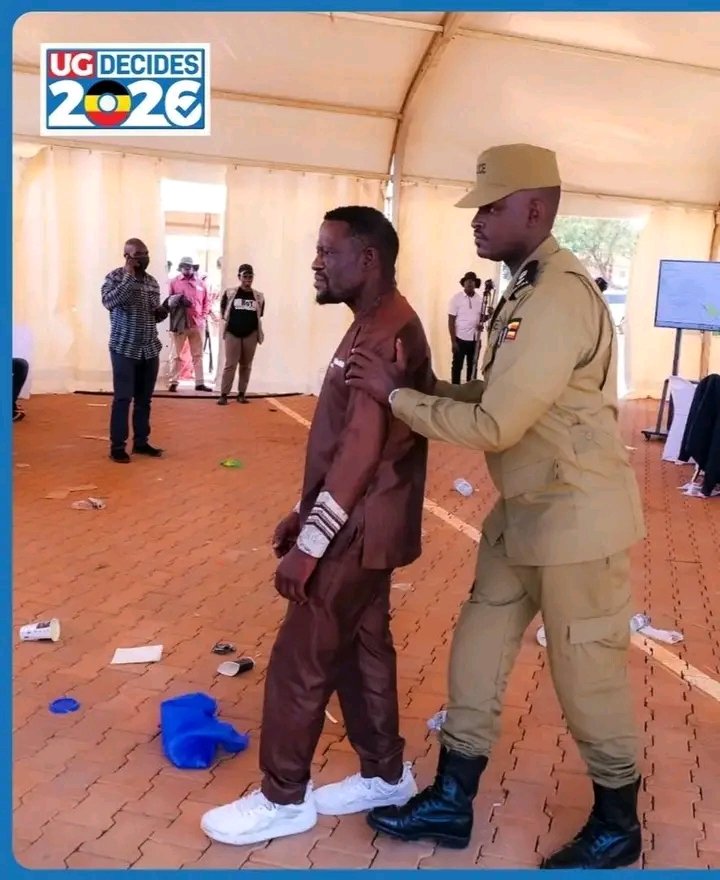
KAMPALA – A minority report presented in Parliament has issued a stark warning, urging lawmakers to consider that President Yoweri Museveni will not be in power indefinitely and that a future leader could use the controversial proposed amendments to the UPDF Act in unpredictable ways.
The report, presented by Hon. Jonathan Odur, frames the debate around the Uganda People’s Defence Forces (UPDF) Amendment Bill, 2025, by looking beyond the current administration. It calls on the House to reflect on the fact that “at any one point soon in our lifetime, Uganda will have another President,” who will automatically become the Commander-in-Chief and, crucially, the “Boss of the Court Martial.”
Hon. Odur then listed a diverse group of individuals frequently mentioned as potential future presidents, “in no particular order of chances,” to illustrate the spectrum of leadership possibilities. The list includes:
· Hon. Jimmy Akena (President of the UPC)
· Hon. Robert Kyagulanyi Sentamu (President of the NUP)
· Hon. Patrick Amuriat Oboi (President of the FDC)
· Gen. Muhoozi Kainerugaba (Senior Presidential Advisor for Special Operations)
· Gen. (Rtd) Greggory Mugisha Muntu (Alliance for National Transformation founder)
· Hon. Nobert Mao (Democratic Party President and Minister of Justice)
· Rt. Hon. Anita Among (Speaker of Parliament)
· Col (Rtd) Dr. Kizza Besigye (Former FDC President)
· Hon. Nathan Nandala Mafabi (Leader of Opposition in Parliament)
The core of Odur’s argument is a call for careful reflection on the character and record of each potential leader. He asked Parliament to consider their “soberness, fidelity to the law, ideology, actions, sentiments, [and] service record” and to “imagine what each one of them is capable of, using such provisions proposed in the Bill.”
This framing shifts the focus of the debate from the immediate implications of the bill under the current government to its long-term constitutional risks. The minority report suggests that granting extensive powers to the office of the President, without considering who might occupy that office in the near future, is a dangerous precedent.
The presentation implies that the proposed amendments, the specific details of which were not outlined in the excerpt, could be weaponized by a future leader, regardless of their political affiliation or ideology. The move is seen as an attempt to persuade colleagues to evaluate the legislation based on principle rather than short-term political alignments.
Odur’s report adds a significant dimension to the discussion, emphasizing that the laws passed today will define the powers of Uganda’s leaders for generations to come.







